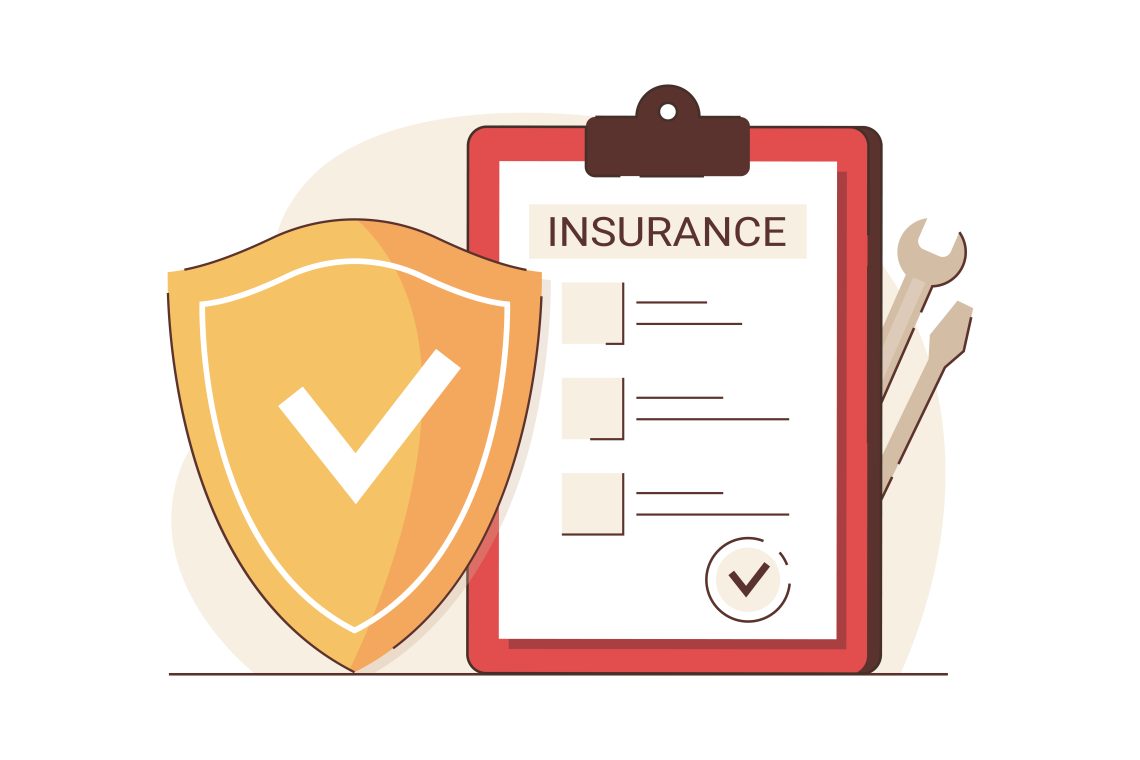I know you have fantastic plans for your business this new year.
I know you are really energized to catapult your business into the next big thing in your industry.
You have plans to double your business assets, strengthen your brand equity, and be on fire.
Having goals and plans for your business is exciting.
But I need you to pause for a second and think about risk management.
I know we said only positive vibes this year, and I hate to be the devil’s advocate, asking you to think about the worst-case scenarios that can negatively affect your business this year.
The truth is, businesses cannot be properly managed with “Inshallah and Vibes,” “Positive mindset only,” or “we hope for the best.”
We hope for the best, too, and that’s why we need you to proactively manage possible risks your business may encounter this year.
Now, let’s do a worst-case simulation.
Let’s imagine that through some negligible machine error, your factory catches fire. Or—
Unknown to you, there is an error in the electrical setup in your newly furnished office space, and it catches fire during the weekend.
(God forbid, I know.) What if the store that contains all your newly arrived container goods from China, worth about 10 million in inventory, is razed by a mob? Or
An unexpected flood wipes out your properties and assets.
Or your associate gives an ill-informed opinion that costs your client millions of Naira, and they come for your neck?
Or worse still, another pandemic occurs!
Now, let’s get personal.
What if you fall really sick and you need hundreds of thousands of naira to take care of yourself?
Or your aged parents suddenly need surgeries?
What are you going to do?
Simply make provisions for these possibilities before they happen by getting insurance.
“Isn’t that a waste of money?”
No, it’s about being very proactive with your business risk. Investing a small amount of money now can prevent the loss of a greater amount in the future.
Insurance is a form of risk management primarily used to hedge against the risk of potential financial loss.
In case you still need convincing, here are a few reasons why you should get insurance:
- To protect your business from a potential mishap that could wipe out its assets (e.g., natural disasters).
- To provide protection for customers or passersby who experience harm because of your business.
- It might be a requirement for certain types of business activities. Some contracts require that you are insured.
- To make your business look credible, showing your customers and suppliers that you are a safe bet while building trust.
- If you borrow money to finance buildings, equipment, or operations, the loan agreement will likely contain a requirement for insurance.
- You cannot predict the future.
- Your business can obtain a loan by pledging the policy as collateral.
Now that you’re convinced of the need for insurance, here’s a list of the types of insurance you can purchase and the various companies that offer them in Nigeria.
Health Insurance
This is a must-have for every entrepreneur. The last thing you want to do is spend unplanned money on a health emergency. If you find yourself in a health emergency, you won’t be logical about spending money; the priority will be life and good health. So what better way than to prepare ahead?
Get health insurance for yourself, your spouse (if any), and your children (if any). Insurance for your aged parents is also very important. The risk of a medical emergency is higher, so ensure that they are sufficiently covered. Moreover, aside from a health emergency, it is good practice that encourages regular health checkups, which are very necessary for aged people.
Reliance HMO offers some really good Health Insurance plans.
They have an Individual and Family Insurance Plan starting at 3,500 or 6,000 per month. This is really incredible. Who knew insurance was this affordable?
Reliance HMO also has insurance coverage for those with pre-existing conditions. This is ideal for aged parents with conditions such as hypertension, diabetes, arthritis, and peptic ulcer. The amount for this plan ranges from 11,500 to 18,000 depending on the hospital chosen.
You should also purchase insurance cover for your employees. Heads up: this is a regulatory requirement and, though it is an expense, it is tax deductible.
You can also check out Axa Mansard Retail Health Plan.
Professional Indemnity Insurance
This insurance plan is mainly for people who run a service-based business and offer professional advice to clients like doctors, lawyers, consultants, engineers, etc.
This policy protects you against claims by third parties for damages arising from omissions, misconduct, or breaches of professional duty, and also against legal costs.
Consolidated Hallmark Insurance offers Professional Indemnity Insurance.
Burglary, Fire, and Special Perils
This insurance plan is ideal for people who have physical stores or warehouses where they store large amounts of inventory. If you’ve heard stories of major markets getting razed overnight, you know how terrifying it can be to lose a substantial amount of money invested in inventory.
Protect your store and inventory from theft, break-in, fire, flooding, and other acts of God.
Consolidated Hallmark Insurance has plans covering burglary, fire, and special perils.
Goods-in-Transit Insurance
Does the thought of whether your “container” has landed or not make you anxious? Please, protect your health and insure your container before shipping. Reduce the risk of spending millions on goods in transit by investing a few thousand in insurance. Better safe than sorry.
Get Goods-in-Transit Insurance today.
Check out AIICO Insurance for this policy. Allianz Insurance also offers this, and Consolidated Hallmark Insurance is not left out.
SME Insurance
Allianz Nigeria provides a number of insurance plans for businesses. They have tailor-made insurance for small and medium businesses to help manage the risk involved in starting and running a business.
This SME insurance is a three-in-one product that combines Life/Personal Accident, Motor, and Property Loss and Damage (fire and burglary) insurance plans.
Before you purchase any insurance policy, take note of the following:
- There are a lot of insurance policies offered by various companies. Decide whether to work with an agent (who sells insurance for just one company), an insurance broker (who represents multiple companies), or buy directly.
- Ask for the exclusions. Every insurance policy has a number of items that are not covered. Ask your provider to explain these exclusions upfront to avoid the discomfort of finding out after you’ve incurred the damage or loss.
- Consider your budget before you subscribe to an insurance policy. You need to assess if you will be able to make payments timely and consistently.
- If you’re looking at buying multiple policies, you might want to bundle them with a single provider. You may be able to bargain for a discount.
- Try not to defer payments of your insurance premium. This is considered a “bad risk,” which can lead to a higher rate. Instead of deferring, notify the insurer that you do not want to renew your policy.
- Review your insurance risks on a yearly basis. Review your needs and make sure your insurance policies are aligned. For instance, you might have purchased more costly equipment or furniture, or your business might have transitioned from needing property insurance to cyber insurance due to a more remote work system. Take note of major changes in your business and how they affect your coverage.
In conclusion, the trick is to make sure that your business is covered for those events that are most likely to happen and to never find yourself unprotected, which might lead to the financial collapse of the business. Perform a risk probability analysis/assessment to estimate the risk of occurrence. Categorize different occurrences into high-risk and low-risk, and decide on the appropriate protection mechanisms.




